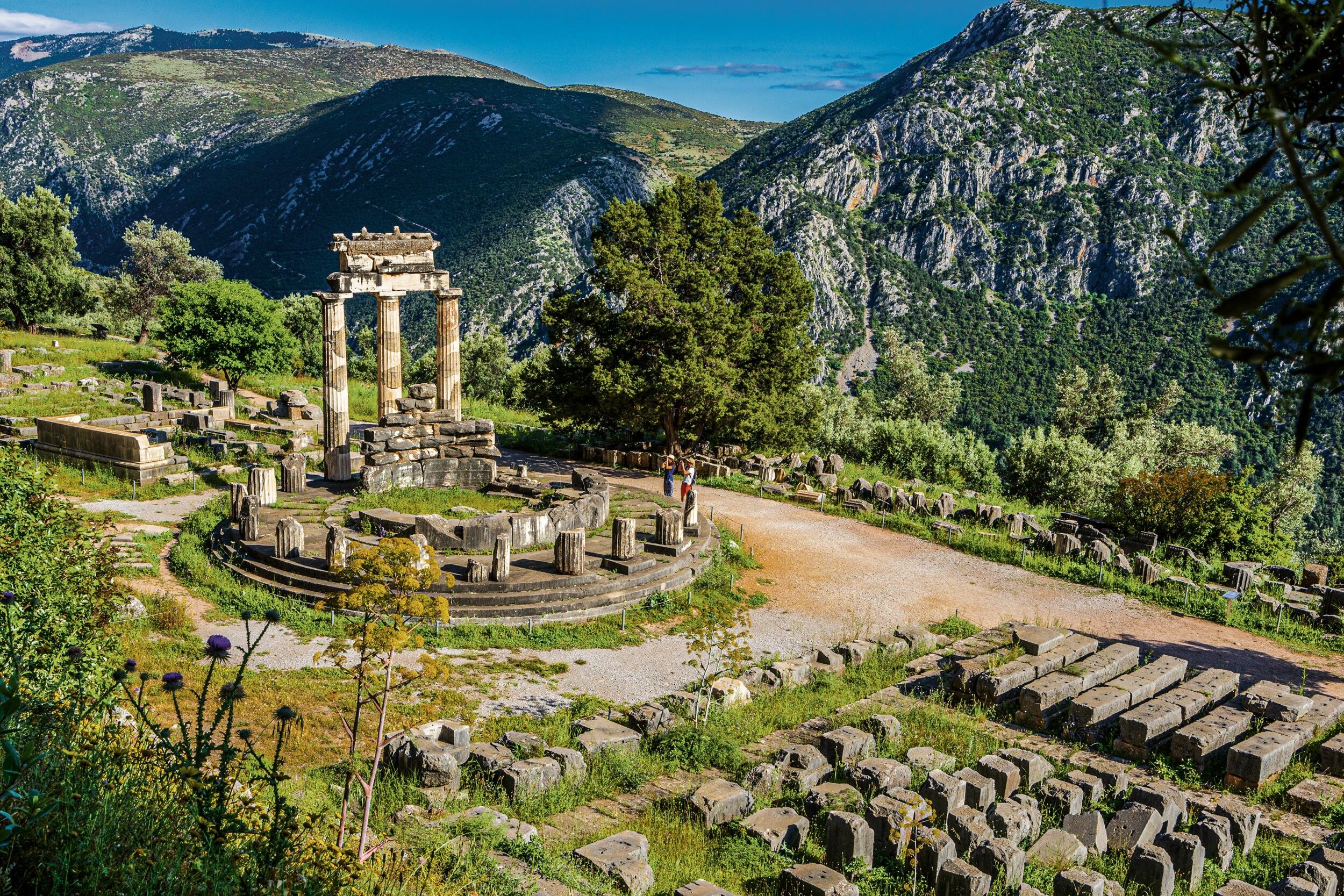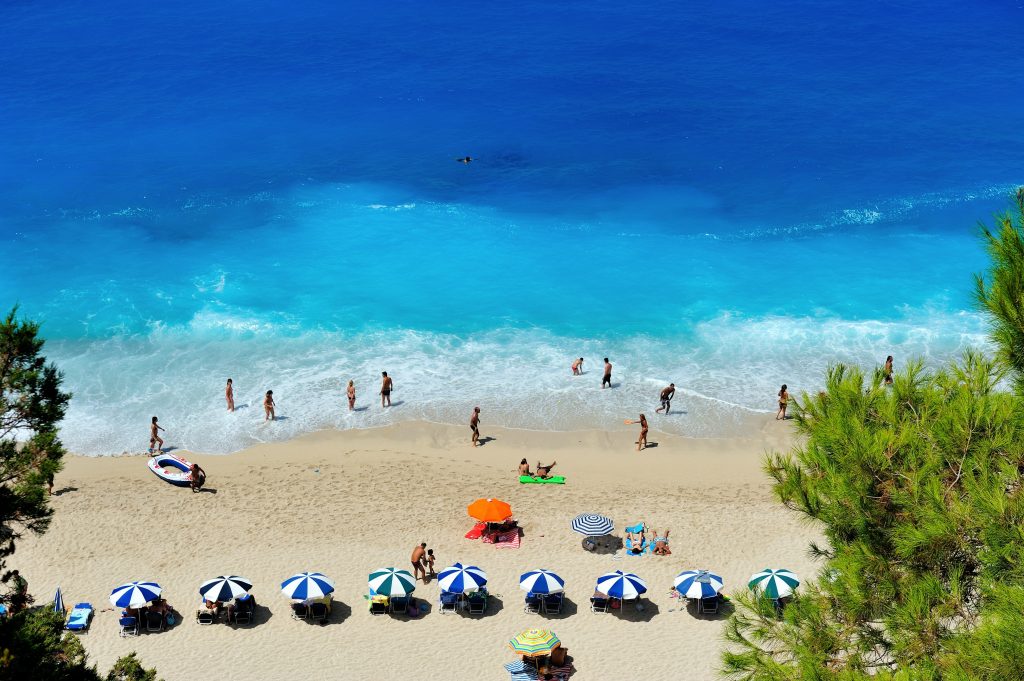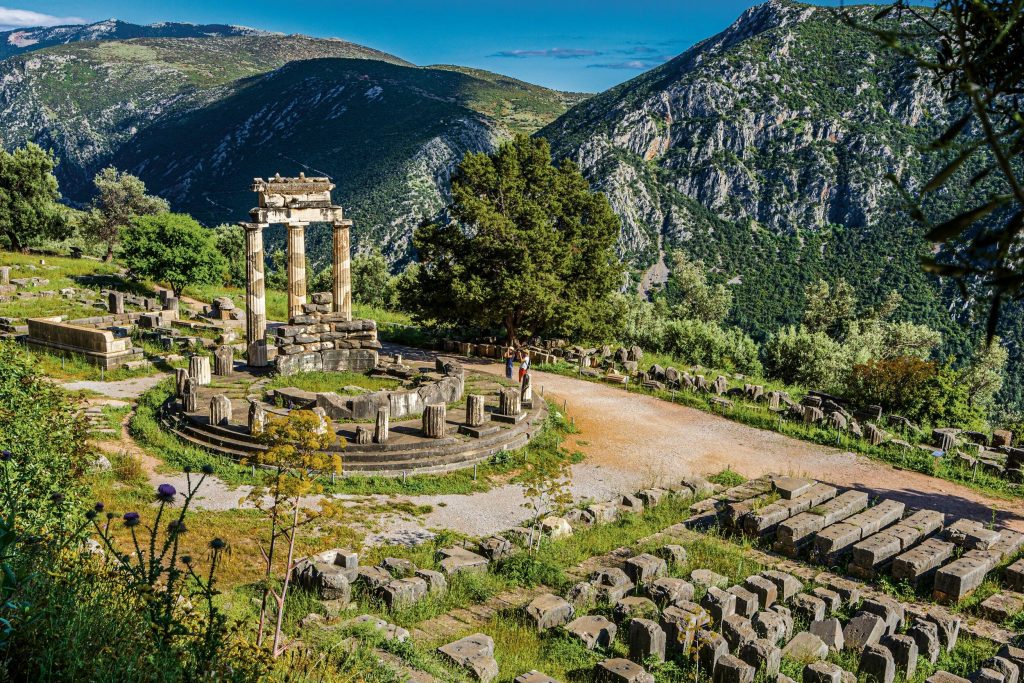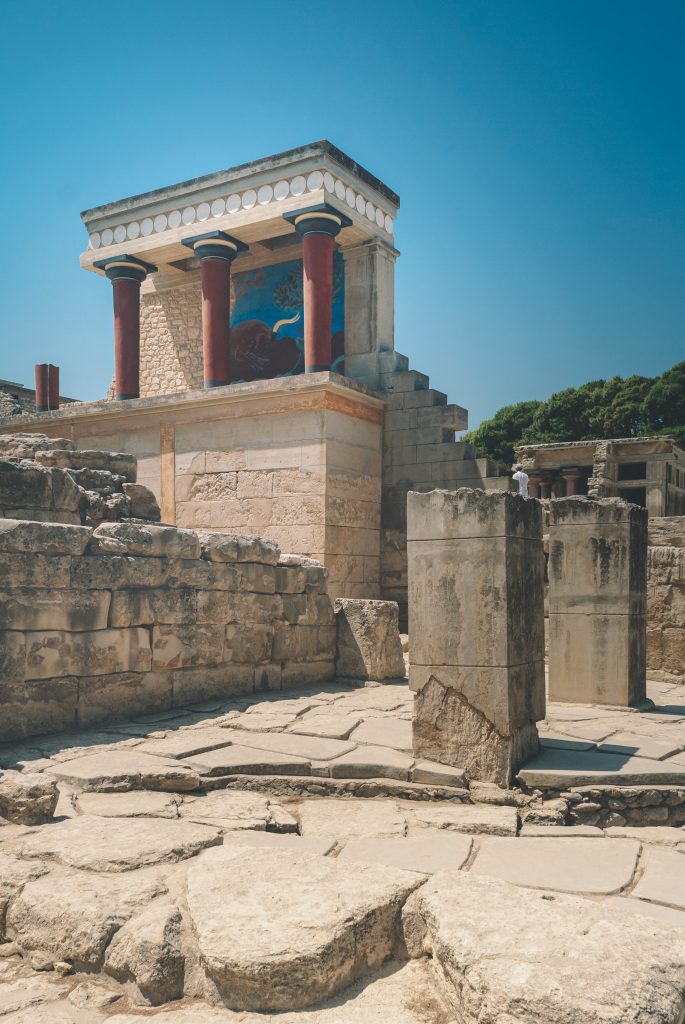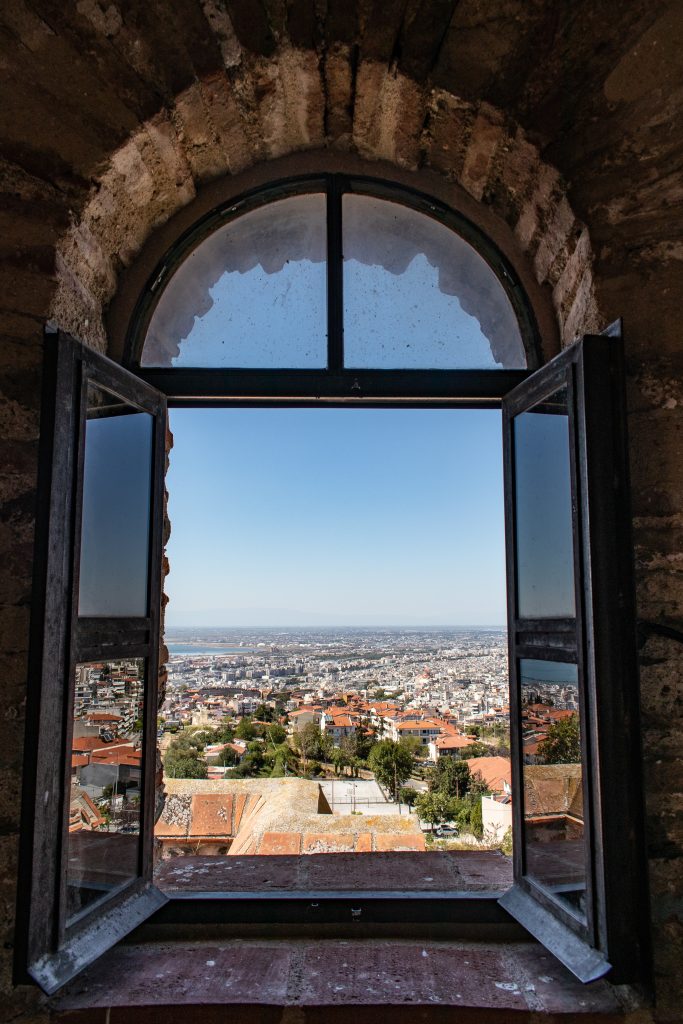Are you planning a trip to Greece? If so, you’re likely to have a lot of questions about what to expect. From its rich history and stunning landscapes to its delicious cuisine and friendly people, Greece is an amazing country to explore. To help make your trip as stress-free and enjoyable as possible, we’ve compiled a list of the top 10 frequently asked questions about traveling to Greece.
In this travel guide, we’ll provide you with the answers to questions such as what to expect from Greek food, the best places to visit, and how to navigate the language barrier.
✅ Make sure you’ll see the entire collection in Framey App, including addresses, opening hours, and contact information!
Do I need a visa to enter Greece?
Whether or not you need a visa to enter Greece depends on your country of origin. Citizens of the European Union, Switzerland, and the United States do not need a visa to enter Greece for stays of up to 90 days. If you plan to stay longer than 90 days, you will need to apply for a Schengen visa. Citizens from countries outside of the EU and the United States may need to apply for a visa before entering Greece, so it is best to check with the Greek embassy in your home country. In any case, make sure that your passport is valid for at least three months beyond your date of arrival in Greece.
What is the best time of year to visit Greece?
The best time of year to visit Greece is during the spring and fall months. The weather is mild, the air is clear, and the temperatures are perfect for exploring the outdoors. During the summer, temperatures can be high, making it difficult to enjoy certain activities. The winter can be quite cold and wet, so it’s best to avoid visiting during this time. Spring and autumn offer the perfect combination of warm days and cool nights, making it an ideal time to explore the country’s incredible landscape and cultural attractions. From April through June, temperatures range from 18°C to 27°C (64°F to 81°F), and from September through November, temperatures range from 15°C to 24°C (59°F to 75°F).
How much money should I bring to Greece?
When visiting Greece, it is important to plan your budget accordingly. The amount of money you should bring depends on how long you plan on staying and what type of activities you plan to participate in.
Accommodations, meals, and sightseeing can all add up quickly. You should expect to spend between 50-100 euros per day on basic expenses. If you are planning on doing more expensive activities such as dining out, taking tours, or going shopping, then you may need to bring more money.
If you plan on using credit cards, make sure that you check with your bank to make sure that your card is accepted in Greece. Additionally, it is always a good idea to have some cash with you in case of an emergency.
ATMs are widely available throughout Greece so you can withdraw euros if needed. Before traveling, be sure to check with your bank to understand any fees associated with withdrawing money from ATMs outside your home country.
Finally, make sure to also factor in souvenirs or other items you may want to purchase while in Greece. Shopping can be fun and prices are often reasonable, but it is best to be prepared.
What is the currency in Greece?
The currency used in Greece is the Euro (EUR). All prices are displayed in Euros. It is recommended that travelers exchange their foreign currency into Euros before entering Greece, as this will ensure they get the best rate of exchange. Additionally, credit and debit cards are widely accepted in Greece, but it is still recommended to bring cash just in case. ATMs are also available in most major cities and airports throughout Greece, so travelers should not have any trouble withdrawing cash if needed.
What are some must-see places in Greece?
Greece is a land of history and culture, and it’s full of beautiful and interesting places to explore. From the ruins of ancient cities to picturesque islands, here are some of the must-see places in Greece:
Acropolis of Athens
The iconic Parthenon and other ruins at the Acropolis of Athens are one of the most famous sites in Greece. It’s a must-see place for anyone interested in history and culture.
Meteora
This breathtaking rock formation consists of monasteries perched atop tall pillars of stone, with views of the surrounding countryside.
Delphi
The archaeological site of Delphi is an important place in Greek mythology. Here you can visit the Temple of Apollo and see the Oracle’s throne and many other ancient artifacts.
Santorini
The stunning island of Santorini is a must-see for its beautiful sunsets, stunning beaches, and traditional architecture.
Corfu
Corfu is an Ionian island known for its stunning coastline, turquoise waters, and historic towns. It’s a great spot for beachgoers, sightseers, and foodies alike.
Crete
The largest island in Greece, Crete has something for everyone, from beautiful beaches to stunning mountains and fascinating archaeological sites like Knossos.
Thessaloniki
This vibrant city is known for its lively nightlife and great food scene. Be sure to visit the White Tower and explore its many bars, restaurants, and shops.
These are just a few of the must-see places in Greece! No matter what kind of traveler you are, you’re sure to find something that appeals to you in this beautiful country.
What are some must-try foods in Greece?
If you’re traveling to Greece, you won’t want to miss out on trying some of the delicious local dishes. Traditional Greek cuisine is based on the Mediterranean diet, which means lots of vegetables, herbs, and seafood. Here are some of the must-try Greek dishes that you should look out for:
- Souvlaki – Souvlaki is a classic Greek dish consisting of grilled meat (usually pork, beef, or chicken) served with tzatziki sauce, tomatoes, onions, and fried potatoes. It’s often served in a pita bread wrap or on a skewer.
- Moussaka – Moussaka is a classic Greek casserole made with layers of sautéed eggplant, ground beef, and a creamy béchamel sauce topped with cheese.
- Gyros – Gyros are a popular street food in Greece. It consists of a pita bread wrap filled with grilled pork or chicken, tomatoes, onions, and tzatziki sauce.
- Spanakopita – Spanakopita is a savory pie made with layers of phyllo dough, spinach, feta cheese, onions, and herbs. It’s often served as an appetizer or side dish.
- Greek Salad – A Greek salad is a simple yet delicious dish made with tomatoes, cucumbers, onions, olives, feta cheese, and olive oil.
- Dolmades – Dolmades are vine leaves stuffed with rice, herbs, and spices and served with a yogurt-cucumber dip known as tzatziki.
- Baklava – Baklava is a flaky pastry made with layers of phyllo dough filled with nuts and drizzled with honey syrup. It’s a popular dessert in Greece and other parts of the Mediterranean.
- Galaktoboureko – Galaktoboureko is a creamy custard pie made with semolina and scented with lemon zest and orange blossom water. It’s usually served with honey syrup or ice cream.
Whether you’re looking for a light snack or a hearty meal, Greece has something for everyone! So be sure to try out some of these delicious dishes during your travels!
What is public transportation like in Greece?
Greece has an extensive public transportation network that covers the entire country, including buses, ferries, trains, and taxis. Buses are the most common form of transportation, connecting all major cities, towns, and villages. There is also a well-developed rail network with regular services between major cities, such as Athens and Thessaloniki. For visitors who want to explore the many islands, ferries are available for both inter-island and international trips. Taxis are generally reliable but can be expensive; it is wise to negotiate the fare before beginning your journey.
For those looking for a more budget-friendly option, Greece has an impressive car rental market with plenty of vehicles available at very reasonable prices. Additionally, there are plenty of bike-sharing companies throughout Greece, providing a fun and affordable way to explore the cities. Overall, there are plenty of options when it comes to public transportation in Greece, making it easy to get around and explore all that the country has to offer.
What is the nightlife like in Greece?
Greece is a beautiful and vibrant country that offers its visitors a wide range of nightlife experiences. From lively beach bars to lively dance clubs, the country is full of activities and entertainment for all ages.
In major cities like Athens and Thessaloniki, there are plenty of bars and clubs where visitors can enjoy a night out. These places offer everything from DJ sets to live performances, and some even host special events such as Greek nights or belly dancing shows. Many of these establishments also provide music, food, and drinks for guests.
The Greek islands also offer an exciting nightlife experience for travelers. For those looking for an energetic atmosphere, there are plenty of beach bars with loud music, dancing, and drinks. If you’re looking for something more relaxed, you can find plenty of traditional taverns with local music and traditional dances.
No matter what type of experience you’re looking for, the nightlife in Greece has something for everyone. Whether you’re looking for an energetic party scene or a more relaxed atmosphere, you’ll be sure to find it in this beautiful country!
What are some safety tips I should know about when traveling to Greece?
Greece is a relatively safe destination, but it’s still important to be aware of potential dangers. Here are some safety tips to keep in mind when traveling to Greece:
- Avoid carrying large amounts of cash on you at any time. Pickpockets can be a problem in big cities, so try to use credit cards or prepaid cards for most transactions.
- Be aware of your surroundings and trust your instincts if something doesn’t feel right.
- Don’t flash expensive jewelry or expensive cameras in public, as this can make you a target for thieves.
- Always make sure that the door and windows in your hotel room are locked when you leave.
- Be mindful of scammers and be wary of people offering “deals” that sound too good to be true.
- Exercise caution in certain areas after dark, such as downtown Athens and other tourist hotspots.
- Take extra care when visiting isolated beaches and popular tourist sites like the Acropolis; they are often pickpocket hot spots.
- Avoid swimming in rivers or lakes, as currents can be unpredictable and dangerous. Stick to the ocean instead.
- If you plan on renting a car, make sure that the rental agency provides all necessary insurance coverage.
- Be aware of the language barrier; it can make it difficult to communicate with locals or ask for help if needed.
Are there any special customs I should be aware of when traveling to Greece?
Yes, there are some customs you should be aware of when traveling to Greece. One of the most important things to remember is to dress modestly. For example, tank tops and shorts are generally not acceptable for women.
In terms of tipping, it’s customary to leave 10-15% in restaurants, as well as at hair salons and spas. It’s also important to observe the no-smoking laws in public places.
When it comes to greeting someone, Greeks prefer a light handshake with direct eye contact. It’s also considered polite to offer compliments and greetings in Greek, even if you don’t speak the language fluently.
When attending a Greek Orthodox Church, be sure to wear appropriate clothing such as long pants or skirts and a shirt that covers your shoulders. Women should also cover their heads.
Finally, it’s important to note that it is illegal to take archaeological artifacts out of Greece. Any artifacts discovered must be left in place and reported to the Greek authorities.
Traveling to Greece is an unforgettable experience, with something to offer everyone. Whether you’re looking for an escape to sun-drenched islands, a journey of culture and history, or a chance to experience the vibrant nightlife and delicious food, you’ll find it in Greece. With the right preparation and knowledge, your trip can be amazing.
To ensure your trip is as enjoyable as possible, we recommend using Framey to stay up-to-date on your friends’ holiday photos and to get inspired for your next trips. Framey App is the perfect way to share your photos and stories from your Greek holiday and connect with others who have also been there.
This way, you can reminisce about all your amazing experiences in Greece!


